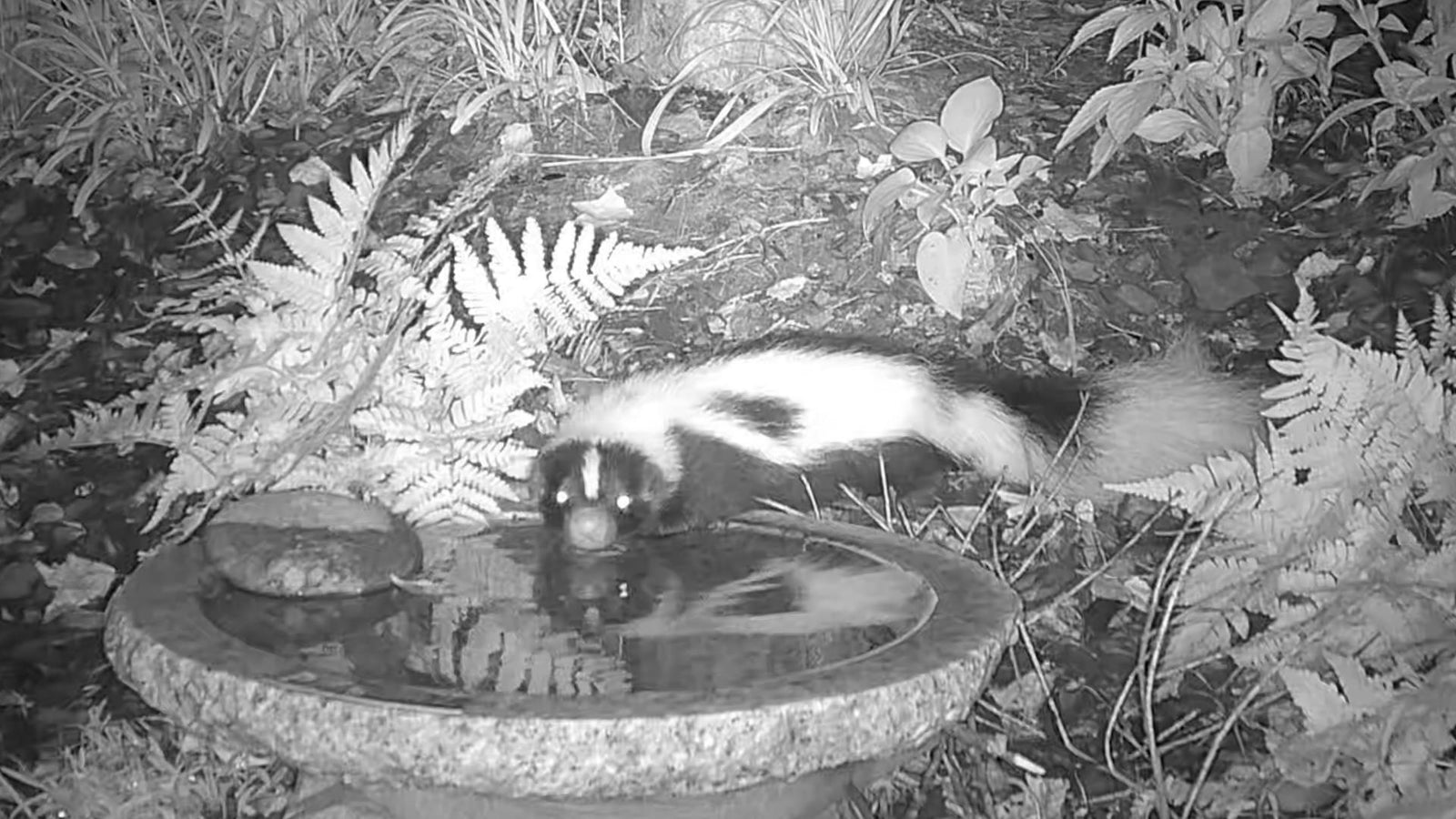Why all the stink about skunks?

Why so hateful?
It’s sad that skunks are hated and abused by so many people. A neighbor once told me she was glad that two baby skunks had been killed on the street near our neighborhood. She hoped they’d all be killed. Another neighbor saw a skunk that was foraging 20 feet from where he sat on his second-story deck. Even though there was no risk of being sprayed, he threw rocks at it. Sadly, this is not an uncommon attitude towards these beautiful, gentle animals that keep your snakes, rodents, and grubworms in check, and who happen to have a very effective defense mechanism. Skunks have lived under my deck for years. There is no smell, and they haven’t caused any issues. They’re nocturnal, so on the occasion when I’m outside late at night I clap my hands and whistle to make a bit of noise. If they’re around, they just mosey away.
Be cool
My brother-in-law James shared the following skunk story: When he was young, his family piled into the convertible, put the top down, and drove out to the country to visit Grandma. On a remote gravel road, they came across two skunks blocking their path. Some people would have opted to wait for them to move along, but his father was impatient and laid on the horn. The whole family (in the topless car) got a double-barrel skunking that day. James purports that the trauma to his olfactory receptors resulted in him no longer being able to smell skunks, so at least he has that.
My daughter has a large boxer named Rigby and skunks live under their back deck. Before Rigby learned what a skunk was, he got a full blast. It only happened once. Now that he knows how skunks operate, he and the skunks have cohabitated for years without any issues. Her previous dog, a pit bull named Tux, once came face to face with a skunk while she was walking him on a leash. She was terrified thinking they were both about to get a full blast, but Tux was cool and gentle. The skunk seemed unafraid of Tux as they faced each other, nearly nose-to-nose, then it just turned and walked away. Perhaps they were just saying hello, or perhaps they discussed what each could do to the other and agreed that a peace treaty was the best option.
The facts
People who think "skunks stink” and go around spraying for no reason are misinformed. They do not smell prior to spraying in self-defense, and their preference is to move away from danger. In fact, if they feel there may be a threat, they release a small amount of their scent as a warning. They have a limited supply at any given time, so only spray the full amount when they feel they must defend themselves.
The best practice is not to scare them.
My skunk experience
One summer day a few years ago I was returning home in my car and saw an adorable baby skunk foraging in my back yard near the street in broad daylight. Skunks are nocturnal so this was unusual. I rolled down my window and advised an approaching neighbor to cross the street with her dog to avoid an incident. She had not noticed the skunk and thanked me. I looked back at the baby and asked him why he’s out in the daytime. I continued to tell him that he’s getting too close to the street and it’s not safe. Yes, I talk to animals, knowing they have no idea what I’m saying. He stared blankly in my direction, wondering what the source of the noise was, I’m sure. Then, he slowly began to raise his tail, getting ready to defend himself if needed. I quickly moved on, hoping he’d stay safe.
A while later, I was working in the back garden and that little guy was now foraging in my neighbor’s yard about 20 feet from me. I was glad to see he’d moved away from the street. If he noticed me at all, I’m sure he thought I was just another animal who was also foraging. He did his thing, and I did mine, and there was no incident. I suspect this baby’s mother had been killed by a car or trapped and when she was no longer there to provide milk, he became so hungry he left the den to find food. I wondered about his siblings and thought what easy prey he was.
That was a few years ago, before I had started to provide fresh water for the local wildlife. I have seen a significant drop in dead skunks on the busy street near my house. I know they’re still around because they frequently show up on my wildlife camera. Maybe it’s wishful thinking, but I like to believe that the reduction in roadkill is at least partly because they now have a local fresh water source so less reason to cross the street into other neighborhoods. I’m surprised at how much skunks drink and wonder where they were finding water before.
Summary
It requires little effort to coexist with these beautiful creatures whose natural habitats have been steadily destroyed by humankind. Skunks and other wild animals in urban settings are simply doing their best to survive in the space that is left. It’s their world too. Please be kind.
Here's another batch of cuteness for the skunk lovers:


Leave a comment